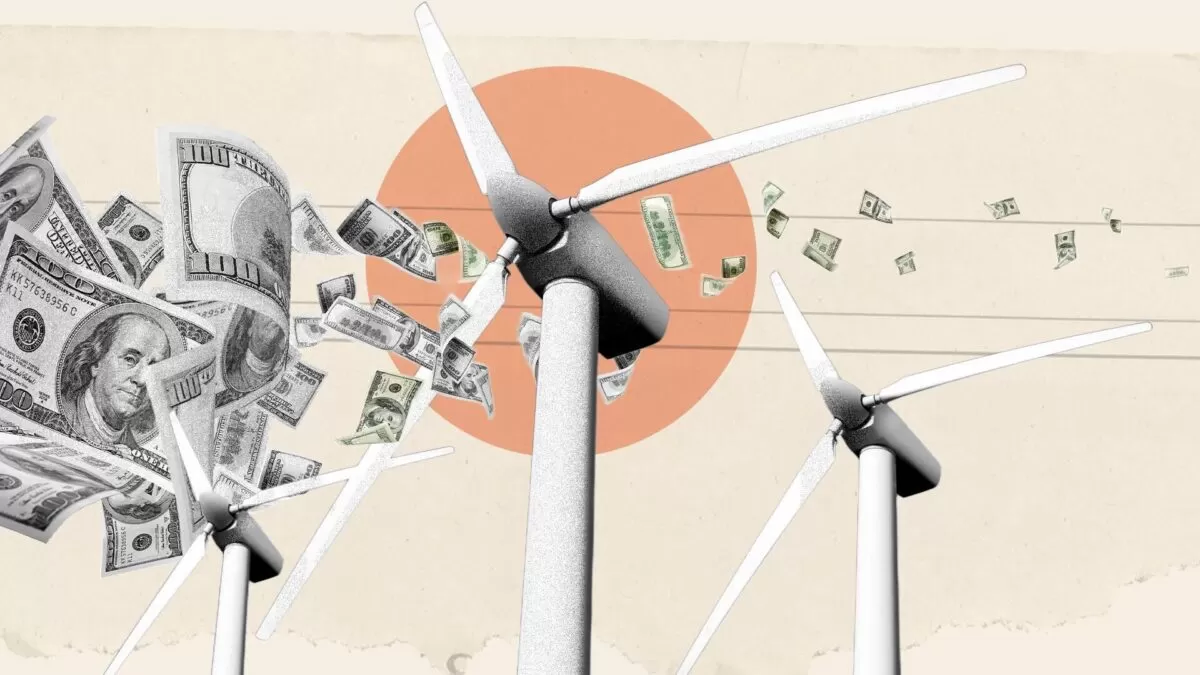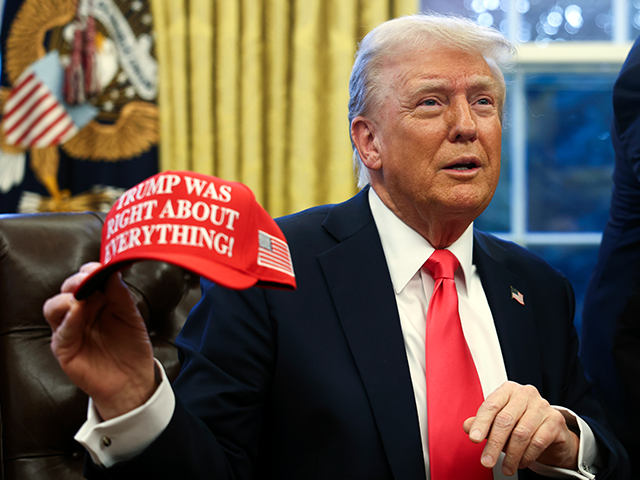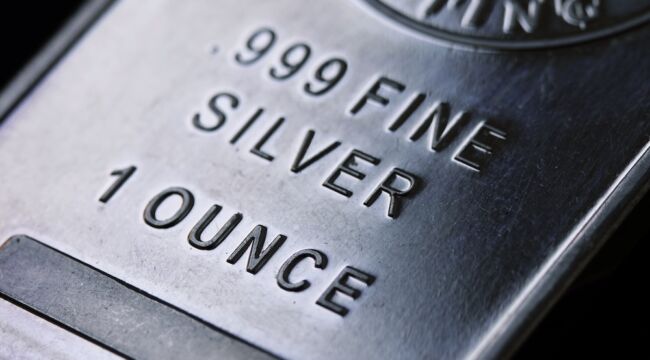What to Expect From This Week’s Inflation Report
According to PCE, inflation likely stayed stubborn in February, in contrast to a different measure that showed it decelerating.
by Diccon Hyatt
Investopedia
:max_bytes(150000):strip_icc():format(webp)/GettyImages-2205105083-d49968ffb46e4e2d9d913bf1f5e409de.jpg) Inflation was pretty tame in February—or was it? A report on inflation scheduled for Friday could throw some cold water on the idea that consumer price increases are significantly decelerating.
Inflation was pretty tame in February—or was it? A report on inflation scheduled for Friday could throw some cold water on the idea that consumer price increases are significantly decelerating.
A report on Personal Consumption Expenditures by the Bureau of Economic Analysis is expected to show the cost of living rose 2.5% over the last 12 months, the same annual rate as in January, according to a survey of economists by Dow Jones Newswires and The Wall Street Journal. The forecast calls for “core” inflation, which excludes volatile prices for food and energy, to have risen 2.7% over the year in February, up from 2.6% in January.
Shocking Numbers: Young People Have Lost Hope
from King World News
 The numbers of young people who have lost hope are truly shocking. Take a look…
The numbers of young people who have lost hope are truly shocking. Take a look…
March 27 (King World News) – Gerald Celente: A newly released survey found that young people in the U.S. are not excited about their future and have little faith in the government.
The Financial Times, citing its own analysis of a Gallup poll, reported that less than 1/3 of individuals under the age of 30 said they trust the federal government and 31 percent of those surveyed said they feel like they do not have the freedom to do what they want to do—which the paper said is a record high.
Julie Ray, the managing editor of Gallup, told the paper that the younger population in the U.S. sees the future as “kind of bleak.”
U.S. Government Fiscal Mess: Debt, Deficit, Interest Payments, and Tax Receipts: Q4 2024 Update On an Ugly Situation
by Wolf Richter
Wolf Street
 The Deficit-to-GDP ratio and Debt-to-GDP ratio get even uglier.
The Deficit-to-GDP ratio and Debt-to-GDP ratio get even uglier.
To what extent do interest payments that the US government pays on its ballooning and gigantic debt eat up tax receipts? That is a key question about the US fiscal mess.
Sharply higher tax receipts in Q4 and slowing growth of interest payments in Q4 cause this ratio of “interest payments to tax receipts” to dip to 35.6% in Q4 from Q3. But year-over-year, it worsened by 1 percentage point, based on a measure of tax receipts released today by the Bureau of Economic Analysis as part of its second revision of Q4 GDP.
Here’s How the U.S. Might Force Foreign Nations Into Submission
by James Hickman
Schiff Sovereign
 On June 8, 1974, President Richard Nixon dispatched Treasury Secretary William Simon and his deputy to Saudi Arabia in an attempt to strike one of the most critical—and secretive—economic deals in modern history.
On June 8, 1974, President Richard Nixon dispatched Treasury Secretary William Simon and his deputy to Saudi Arabia in an attempt to strike one of the most critical—and secretive—economic deals in modern history.
Three years earlier, in August 1971, Nixon had severed the final link between the US dollar and gold, officially ending the Bretton Woods system. That meant foreign governments could no longer redeem their dollars for gold, effectively turning the dollar into a pure fiat currency backed by nothing but political promises.
After Nixon’s move, the US could effectively ‘print’ and spend as much money as it wanted—something that Congress enthusiastically embraced.
Inflation soared, confidence in the dollar plummeted, and foreign countries began dumping dollars as a result.
Federal Energy Tax Credits Will Cost More Than $4 Trillion. Lawmakers Might Not Cut Them.
Republican members of Congress are lobbying to keep the Inflation Reduction Act’s tax credits alive.
by Jeff Luse
Reason.com
 With a continuing resolution passed and the federal government funded through September, Republican members of Congress are aiming to finalize a budget resolution, which needs to be agreed to by both chambers, by the week of April 7, reports Politico. This self-imposed deadline may not be met.
With a continuing resolution passed and the federal government funded through September, Republican members of Congress are aiming to finalize a budget resolution, which needs to be agreed to by both chambers, by the week of April 7, reports Politico. This self-imposed deadline may not be met.
One of the largest sticking points in House and Senate negotiations is the House-passed plan to identify $880 billion in spending cuts through FY 2034 in programs overseen by the Energy and Commerce Committee. This feat would likely require substantial reforms or cuts to entitlements like Medicaid. Sen. Lindsey Graham (R–S.C.), the chairman of the Senate Budget Committee, called the House’s plan “woefully inadequate.”
A source of wasteful spending that lawmakers could target is energy tax credits from the Inflation Reduction Act (IRA).
Why Tariffs Do Not – and Cannot – Cause Inflation
by John Carney
Breitbart.com
 Cato Comes for Kudlow on Inflation and Tariffs
Cato Comes for Kudlow on Inflation and Tariffs
The notion that tariffs cause inflation has become a super-virus infecting the minds of President Trump’s critics, seemingly immune to the usual antibiotics of economic evidence and logic.
The latest outbreak comes courtesy of Norbert Michel and Jai Kedia of the Cato Institute, who argue that tariffs reduce the supply of goods and therefore drive up prices, resulting in inflation. They further suggest that Larry Kudlow, in a recent “riff” segment on his Fox Business show, is misapplying Milton Friedman’s theory that inflation is always a monetary phenomenon. But their argument is more a display of ideological hostility to tariffs than persuasive economic reasoning.
Readers of the Breitbart Business Digest are likely well-vaccinated against this mind-virus, but a bit of booster to this particular strain might help.
Home Buyers Still On Strike, Waiting for Lower Prices, Lower Rates, and Higher Incomes
by Wolf Richter
Wolf Street
 Demand for mortgages to purchase a home has plunged by nearly double the rate of sales of existing homes.
Demand for mortgages to purchase a home has plunged by nearly double the rate of sales of existing homes.
For the past four weeks, mortgage rates have stabilized at just over 6.7%, with the average conforming 30-year fixed mortgage rate ticking up to 6.71% in the latest week, according to the Mortgage Bankers Association today.
The combination of what were normal-to-low mortgage rates in the pre-QE era before 2009 and the fantastical prices today, after the huge QE-fueled run-up in recent years, has whacked demand: Sales of existing homes plunged by 24% last year from 2019, and this year doesn’t look much better, with February having been the worst February since 2009.
Silver’s 3x Upside
by Adam Sharp
Daily Reckoning
 Silver has ripped 40% higher over the past year. It currently trades at $34.33 per ounce.
Silver has ripped 40% higher over the past year. It currently trades at $34.33 per ounce.
Despite the healthy price action, the thought of selling hasn’t crossed my mind.
Today I will lay out the case that silver could triple to over $100/oz over the next few years.
When pondering how high silver could go, historical prices are a logical place to start. To do so properly, however, we need to account for inflation.
A Vision for What’s Possible: 2035
by James Hickman
Schiff Sovereign
 I imagine my parents must have been extremely apprehensive about bringing a child into the world in the late 1970s.
I imagine my parents must have been extremely apprehensive about bringing a child into the world in the late 1970s.
The entire decade was an economic sh*tshow. Inflation soared in the 1970s. The US economy shrank. Stagflation reigned. Unemployment surged to levels not seen since the Great Depression.
And then there were the nasty social effects and geopolitical events– rising crime, constant protests, political turmoil (including the resignation of the President of the United States), the Arab oil embargo, and the humiliating helicopter evacuation of Saigon.
The year I was born saw yet another energy crisis, skyrocketing oil prices, inflation reaching 13%… not to mention the 53 Americans who were taken hostage in Iran.
Fed’s Musalem: Trump Tariff Inflation May Be More Than Temporary
by Jennifer Schonberger
Yahoo! Finance
![]() St. Louis Fed president Alberto Musalem said President Trump’s new tariffs could have a more persistent impact on inflation, a departure from Fed Chair Jerome Powell’s “base case” that any price increases could prove to be “transitory.”
St. Louis Fed president Alberto Musalem said President Trump’s new tariffs could have a more persistent impact on inflation, a departure from Fed Chair Jerome Powell’s “base case” that any price increases could prove to be “transitory.”
“I would be wary of assuming that the impact of tariff increases on inflation will be entirely temporary,” Musalem said during a speech in Kentucky.
“The direct price-level effects [of tariffs] are expected to have only a brief and limited impact on inflation, but the indirect effects could have a more persistent impact on inflation,” he added.
The cautionary comments from the central bank policymaker come one week after the Fed held interest rates steady Wednesday for the second meeting in a row and maintained a prior prediction for two rate cuts at some point this year.
